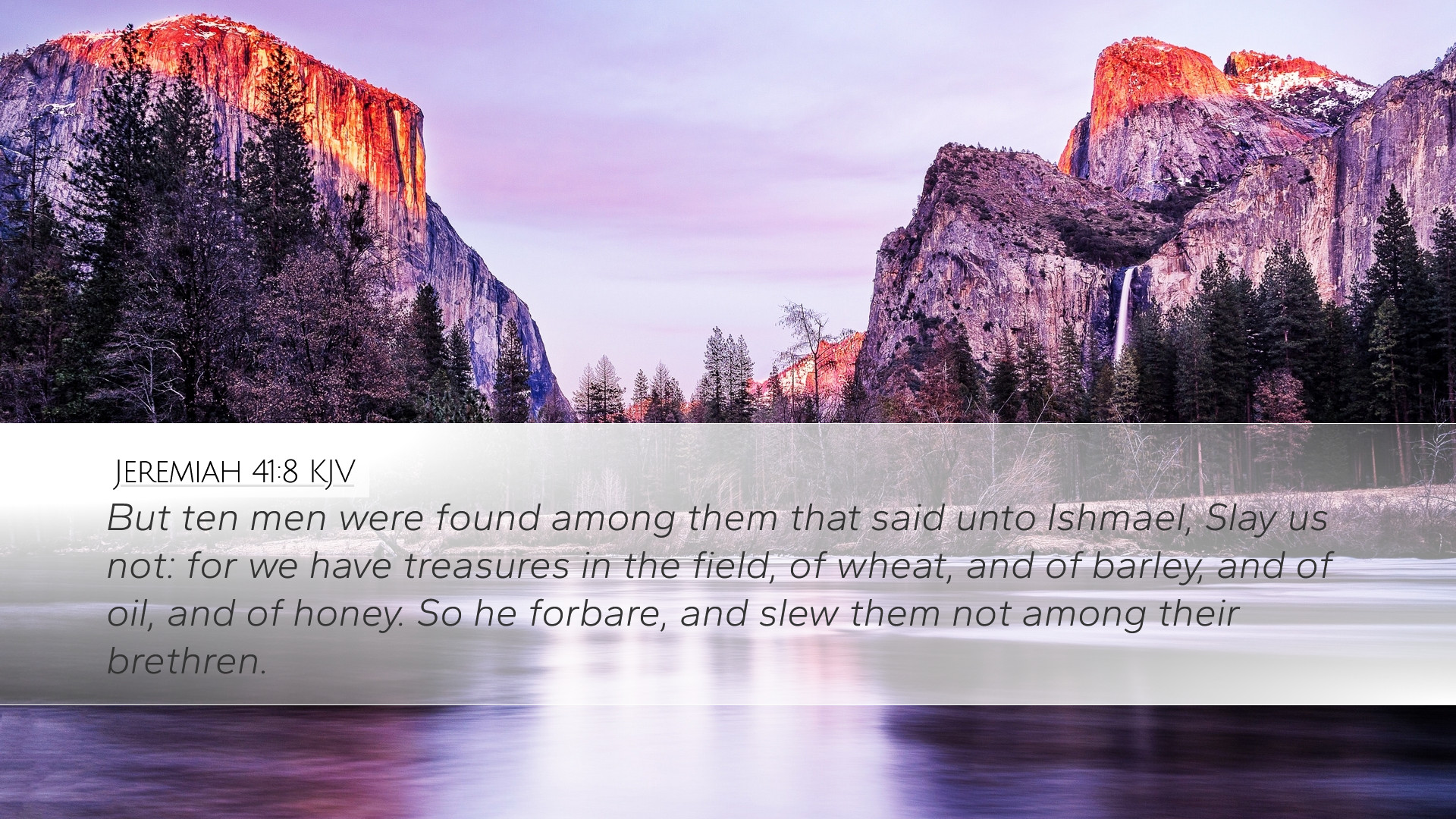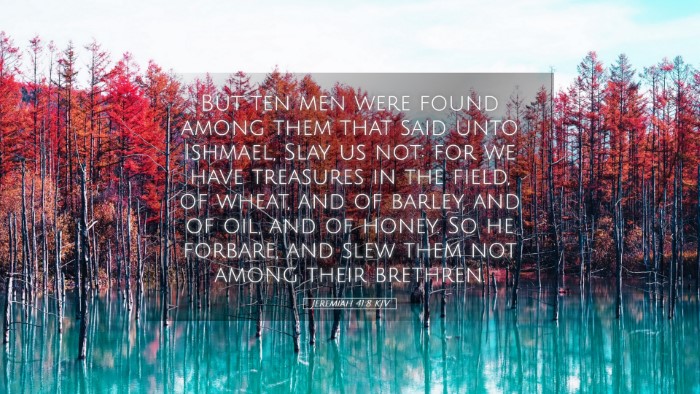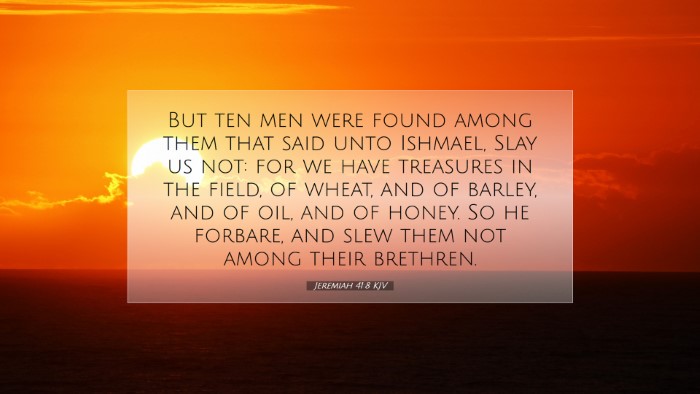Commentary on Jeremiah 41:8
Jeremiah 41:8 states: "But ten men were found among them that said unto Ishmael, Do not slay us; for we have treasures in the field, of wheat, and of barley, and of oil, and of honey. So he forbare, and slew them not among their brethren."
Introduction
This verse is situated within a narrative of chaos and betrayal following the fall of Jerusalem. The chapter narrates the actions of Ishmael, who, in a bid for power, slaughters the appointed governor, Gedaliah, and many other Jews. In this context, Jeremiah 41:8 reveals the mercy shown by Ishmael in sparing certain men due to their proclaimed treasures, which serves as a multifaceted statement on human behavior, mercy, and the tumultuous post-exilic society.
Historical Context
The historical backdrop of Jeremiah 41 is critical for understanding this text. Following the Babylonian conquest, those left in Judah faced political instability and external threats. Ishmael, a member of the royal family, undertakes a series of violent acts aimed at asserting his control. This critical moment stands as a sobering depiction of the aftermath of exile and the struggle for survival.
Exegesis of the Verse
The phrase "But ten men were found among them" carries significant weight. The number ten often symbolizes completeness in Hebrew culture, suggesting a complete group yet still underscoring the desperate plight of these men who plead for their lives.
The men’s plea—"Do not slay us; for we have treasures in the field"—illustrates a survival instinct that resonates through the ages. Their claim to having treasures reflects not just material wealth but possibly hope for sustenance and future restoration. Notably, the treasures include wheat, barley, oil, and honey, symbolizing agricultural abundance and the blessings of God which they hoped to reclaim.
Theological Implications
- Human Life and Value: The men's bargaining for their lives highlights the intrinsic value of human life, even amidst degradation and violence.
- The Nature of Mercy: Ishmael's decision to spare them indicates a complex interaction between mercy and self-interest—a reminder that mercy may sometimes stem from pragmatic considerations.
Commentators' Insights
Matthew Henry remarks on the irony of the situation, noting how the very people seeking to preserve their lives had previously participated in a society that had fallen away from God. Their material treasures serve as both a literal and symbolic lifeline, representing not just wealth but the remnants of God’s provision even in dire circumstances.
Albert Barnes emphasizes the mercy shown by Ishmael and contrasts it with his violent actions, suggesting this duality points to the complicated nature of sin and redemption. Barnes notes that even in a time of great evil, God's providence can be observed as individuals are spared for His purposes.
Adam Clarke discusses the strategic approach of the ten men, underscoring their understanding of the value of resources in a time of scarcity. Clarke suggests their mention of “treasures” is not merely physical wealth but indicative of potential; their survival could yield future blessings for the community if they were allowed to live.
Lessons for Today
- Awareness of Human Fragility: This passage reminds us to be sensitive to the fragility of life, the dire circumstances that lead to desperate pleas for mercy.
- The Role of Material Resources: It provokes thought regarding the role material resources play in our interactions—how they can lead to both mercy and exploitation.
- Complexities of Leadership: Ishmael's actions illustrate the complexities faced by leaders in times of crisis, posing questions about the nature of authority, responsibility, and moral choice.
Conclusion
Jeremiah 41:8 serves as a poignant reminder of the interplay between life, mercy, and material wealth in the struggle for survival. As we reflect on the insights of esteemed commentators such as Matthew Henry, Albert Barnes, and Adam Clarke, we discover enduring truths that challenge us to evaluate our own actions and motivations in the light of divine mercy and human frailty.


